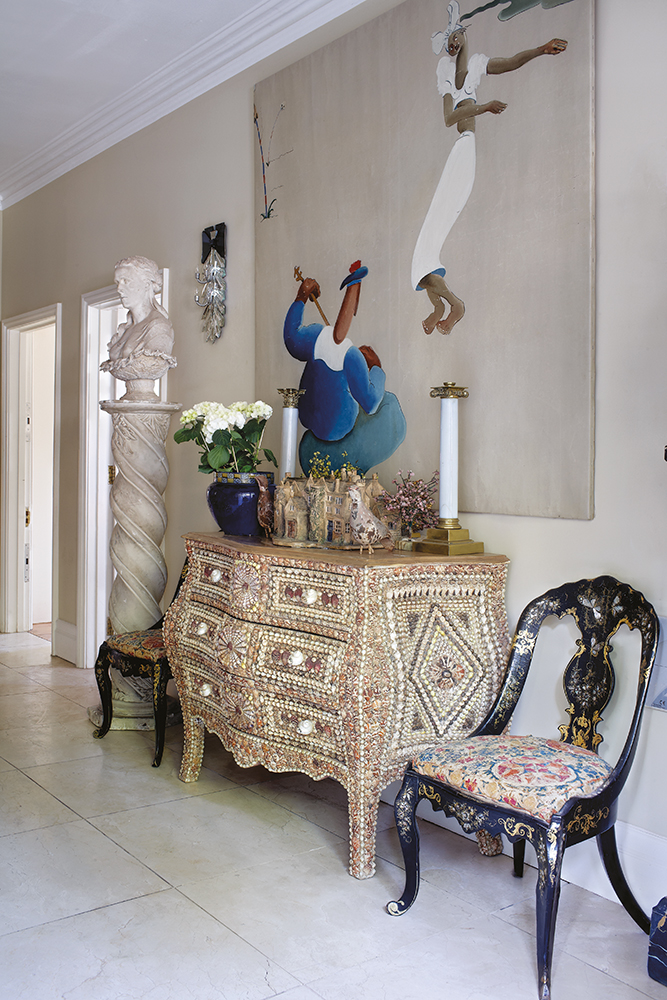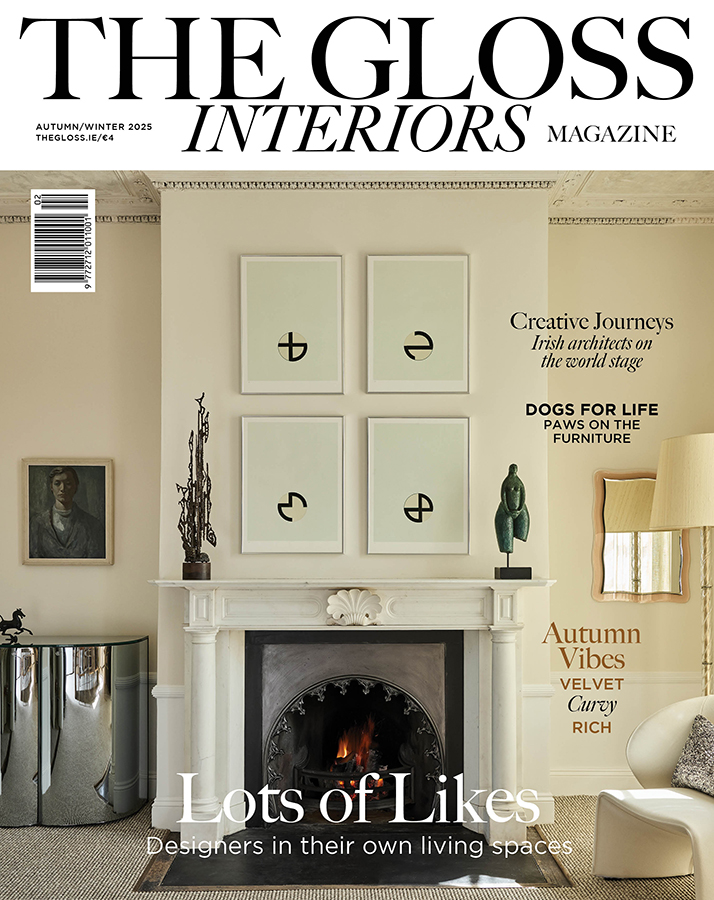Polly Devlin dips her toe into conchology …
Have you got an enchanted place in your memory bank to revisit in times of stress, when you want to escape present circumstances or are trying to get to sleep – a haven which you didn’t even know was that special, until there it was, lodged in the mind like a visual poem comforting and consolatory? Like Wordsworth (not) I have owed to these places sensations sweet, Felt in the blood, and felt along the heart; And passing even into my purer mind, With tranquil restoration: – feelings too of unremembered pleasure. Gentle readers, you may be surprised to hear that for me one such place of remembered pleasure is Bray.
As children, we used to go to come down from the Black North to the Sinful South to Bray for our August seaside holidays. It seems unlikely, looking at the distorted town now, so ruined by cruel settlement and nasty decisions, but Bray in the 1950s was a genteel charming resort, with a pebbly sandy beach, fantastic concrete swimming baths, an esplanade – wonderful word – a frontage of hotels and boarding houses – and a great big cross on Bray Head. What seemed to me to be the biggest hotel in the world, The International, was near to where we stayed and seemed the epitome of glamour, though I never put a foot through the doors. Indeed, there was never any question of us staying in an hotel – quite outside the parameters of our lives. We were parachuted onto our uncle, the handsome Doctor Devlin, and our cousins, one of whom is the cleverest woman I ever met, the distinguished Judith Devlin now Emeritus Professor in the School of History at UCD and whom I remember accompanying President Gorbachev as his translator on his visit to Ireland.
Just next door to the house and surgery was a dazzling, magical, mysterious funfair. There aren’t enough adjectives to describe this paradise of amusements. At home we lived in a place without electricity where the Milky Way galaxy actually shone down on us so the Bray fair was the epitome of electrifying electricity. I can still see the artificial flare of the garlanded lights, the crazy three-dimensional lettering on the carnival stands, the rides and kiosks promising spills and thrills, that acrid scorch of the bumper cars, the luring smell of spun sugar toffee apples and I still recall the terror of the ghost train and the taste of vomit from spinning on the Waltzer.
Bray became the Good Place and the Golden City far removed from any place I had ever even dreamed of. The sea! The beach! The shells! The sea glass. Where to start, with all the glittering treasures for a child with a void. A glass factory once operated above Bray and leftover glass was dumped in landfill near the edge of the cliff. Over the eroding years these fragments have slid down onto a certain obscure beach. Treasures. It was here that began my love for sea glass and for shells.
The sea, too, was a miracle. The extent of it, the tides, the wrack. I was no stranger to water. At home in subfusc Tyrone we lived beside Lough Neagh, the biggest stretch of water in the British Isles. But it was fresh water so there were no tides or shells. Shells were exotic and I discovered they were used in fabulous ways as decorations on ornaments. In Woolworths and little beach kiosks I bought a little condiment set and a shrine covered with tiny shells for half a crown. High kitsch but what did I know. My mum made a good show of pleasure.
Everyone always said you could hear the sound of the sea if you held a shell to your ear but when I went back to Tyrone and hopefully connected the small whorl in my hand to the one on my head the only sound was a muffle – nothing like the crash of a wave or the murmur of a tide.

I’m not a conchologist by any means. I understand the fascination of collecting and studying shells but that’s not for me, although I have a small library on the subject and I will travel any distance to see shell grottos and houses.
Parts of my own house are a tad encrusted. I have shell images, shell furniture, shell mirrors, shell obelisks and shell sconces. One pair of sconces is in the shape of demons with curving shell horns and a queen scallop for a mouth. A farmer in deepest Shropshire makes them for relaxation after cattle milking and dreadfully demonic they are, considering how placid the farmer seems to be. Almost my favourite pieces are the beautiful valentines with all manner and colours of tiny shells arranged in hearts and flowers inside carved lidded boxes made by sailors on long voyages for their sweethearts at home. In the hall, a bureau made in Nice in the 1930s is completely covered with shells in fantastic patterns with conches for handles. It stands near to a South Pacific clam shell three foot wide and two feet deep. It takes three men to lift it, so we leave it be.
In one particularly baroque room, a pair of green plaster mermaids are holding up almost transparent lampshades made from – guess what – shells. These treasures I found in Paris in a rundown shop in rue de Sévigné – which is a chic street, as you know, but this shop stood out as a rare decaying treasure trove. My mouth watered every time I passed it, but it was always closed. Along the distressed wall at the back among packing cases and crumpled paper were ranged 14 big buxom delightful sirens with green shell tails. I fell madly in love, but I wasn’t greedy, oh no, I only wanted two. But there was never anyone in the shop. Every time I was in Paris, I loitered obsessively outside. Then one afternoon, over a year since I first spied them, I saw a wraith in a back room and rang and knocked and rang and knocked and even knocked on the window – so cheeky – until a tall, bony man with those glasses that make any face look pinched opened the door. Stony faced. Angry. What did I want? Why was I knocking? Could not I see the shop was closed, closed définitivement, permanently. Nothing was for sale. Rien. Go away.
“I just want two of those sirens,” I said, “and you have 14.” I was in a mind to try wheedling, but I knew it would cut none of the ice in front of me. “Madame, they have all been bought by a decorator for a Texas millionaire. Alors, Madame, go away. Vendue. Partir.”
“Typical of greedy Texans,” I said, “He could do fine well with twelve. I only need two. I’m Irish. The English stole all our mermaids. I’m after restitution.”
His stony face collapsed. We went for lunch. He kept two. I got two. The mermaids have great sentimental value and presumably the Texan millionaire made do with ten.
LOVETHEGLOSS.IE?
Sign up to our MAILING LIST now for a roundup of the latest fashion, beauty, interiors and entertaining news from THE GLOSS MAGAZINE’s daily dispatches.




